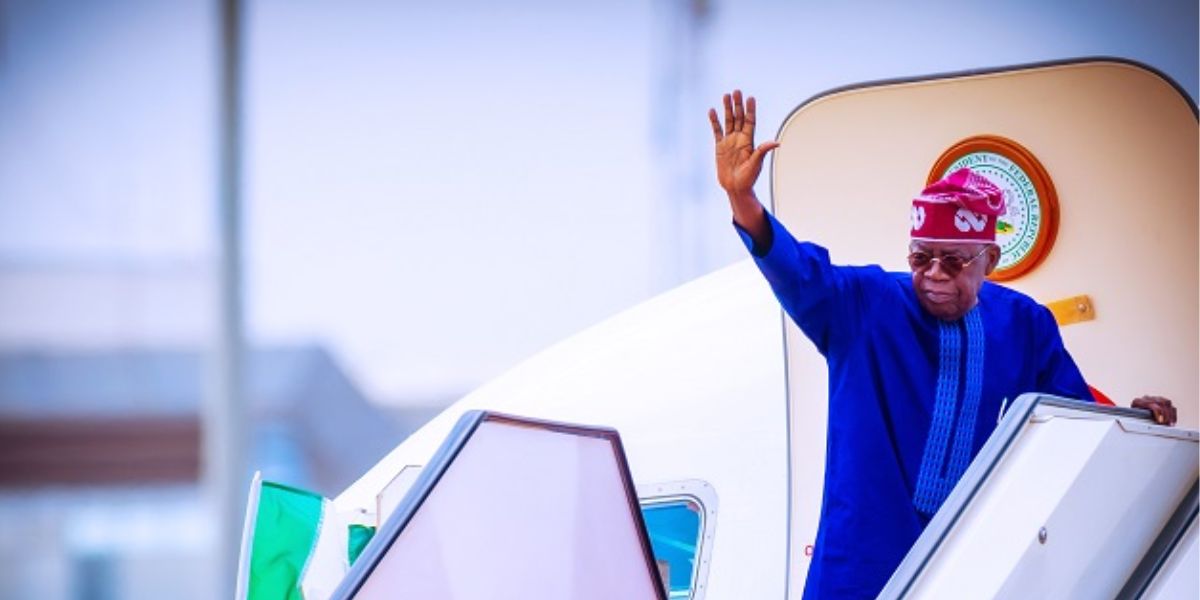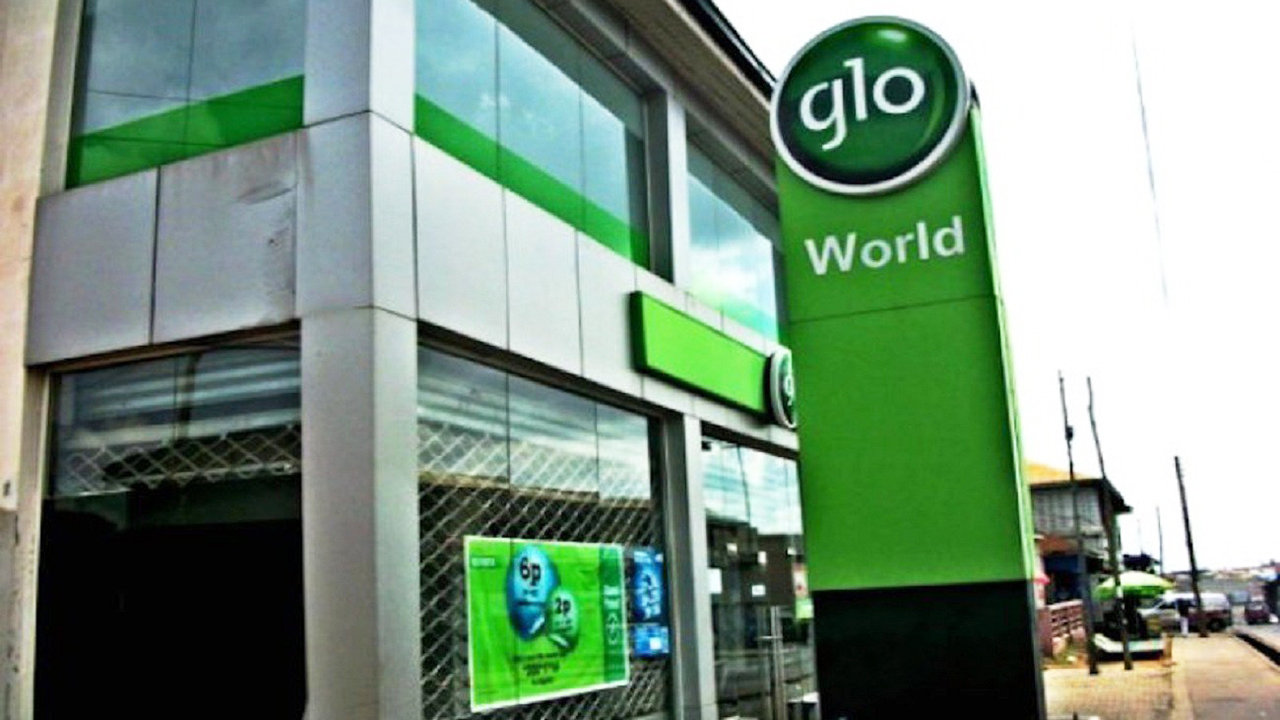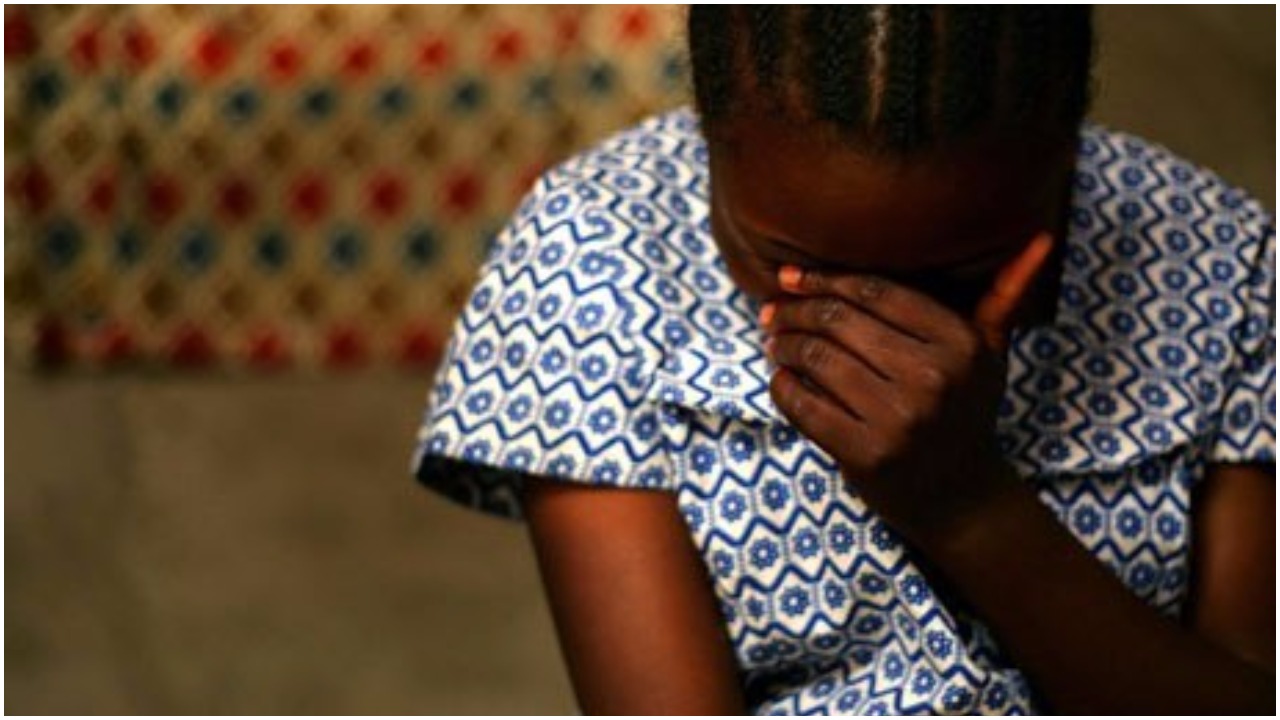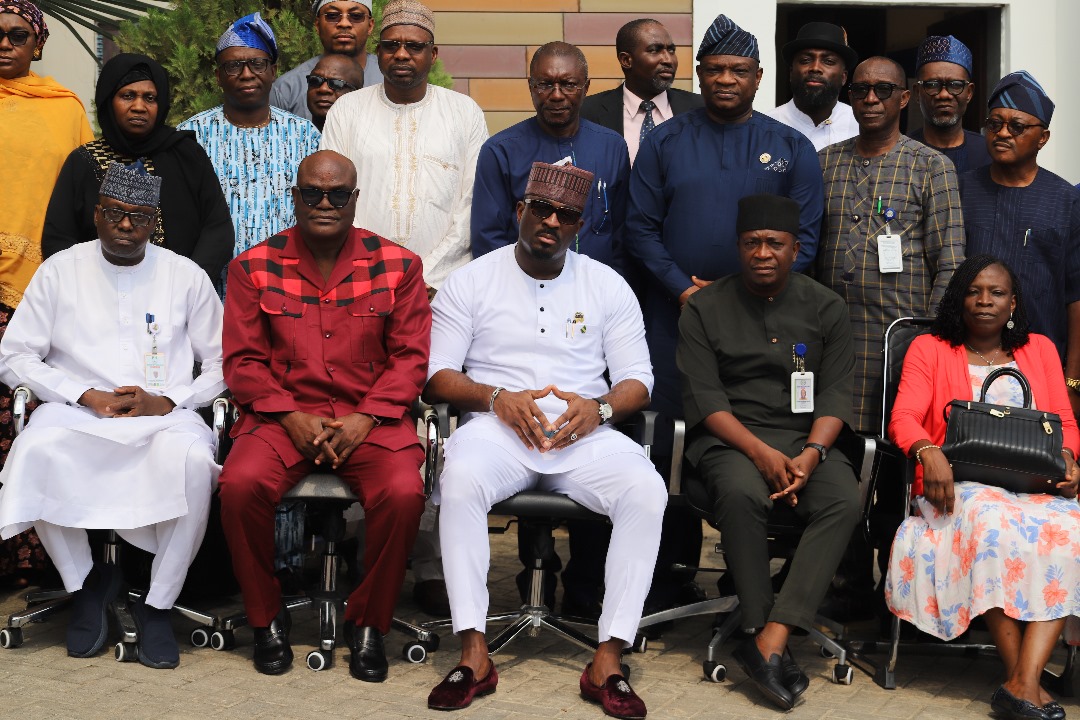Metro
Tinubu Off to Germany Barely 48 Hours After Returning from Saudi Arabia, Guinea Bissau

President Bola Tinubu will on Saturday, leave Abuja for Berlin, Germany, barely 48 hours after he returned from foreign trips to Saudi Arabia and Guinea Bissau where he spent at least seven days, according to SaharaReporters.
Tinubu, who left since November 9, had attended the Saudi-Africa Summit in Riyadh and proceeded to Guinea Bissau before arriving in Abuja on Thursday evening.
In his latest foreign trip, Tinubu will be attending the G-20 Compact with Africa (CwA) Conference in Germany – a conference which is being hosted by German Chancellor, Olaf Scholz, and scheduled to hold on November 20, 2023.
This was contained in a statement signed by Presidential spokesman, Ajuri Ngelale, on Friday, noting that the president will be accompanied by the Minister of Foreign Affairs, Amb. Yusuf Tuggar.
Others are the Coordinating Minister of the Economy and Minister of Finance, Mr. Wale Edun; the Minister of Industry, Trade and Investment, Dr. Doris Uzoka-Anite; and the Minister of Power, Chief Adebayo Adelabu.
He explained that Tinubu will join other Heads of State and Government of CwA member countries, bilateral partners, as well as Heads of International Organisations to deliberate on the immediate enhancement of economic and business cooperation with a view to outlining concrete measures to boost investments in critical areas such as energy, trade, infrastructure, and new technologies, among others.
He added that the Nigerian delegation would follow up on productive meetings previously conducted with high-ranking representatives from German business organisations who were part of the official delegation of the German Chancellor to Nigeria, thereby leveraging on the opportunity presented by the Fourth G20 Investment Summit.
Ngelale recalled that in his discussions with Chancellor Scholz in October, President Tinubu highlighted the imminent need for more German companies to invest in the Nigerian market across multiple sectors of the Nigerian economy, such as transportation, mining, and energy, all while noting that Nigeria remained Germany’s second largest trading partner in Africa.
He said Nigeria and Germany, being the largest economies in Africa and Europe, respectively, recorded an increase in bilateral trade volume from two to three billion Euros between 2021 and 2022.
President Tinubu will return to the country following the conclusion of the conference.
Source: SaharaReporters
Metro
Glo Introduces Examination Preparatory Service to Aid Students’ Improvement in CBTs

Telecommunications and digital solutions company, Globacom, has said its Examination Preparatory Service was specifically designed to help students excel in Computer-Based examinations.
Reacting to the poor performance of students in the 2025 Unified Tertiary Matriculation Examination (UTME) examination, the company explained that the Glo Examination Preparatory Service trains students on practical ways to excel in Computer-Based examinations such as Joint Admissions and Matriculation Board (JAMB), Junior and Senior West African Examination Council examinations as well as IELTS.
The 2025 UTME results released by JAMB on May 5 had elicited widespread concerns as more than 1.5 million out of 1.9 million candidates whose results were released scored below 200. A breakdown of the results released by JAMB on Monday showed that 983,187 candidates (50.29%) scored between 160 and 199, while 488,197 candidates (24.97%) scored between 140 and 159.
Globacom said in a press statement in Lagos that the Glo Examination Preparatory Service would help combat poor examination performances especially among secondary school students who take the listed exams.
The service offers targeted approach to exam preparation, allowing students to familiarize themselves with the format, structure, and content of the exams they will be undertaking, the company explained, adding, “By engaging with these practice materials, students can identify areas of weakness, reinforce their understanding of key concepts, and develop effective exam-taking strategies”.
According to Glo, users of the service which covers up to twenty subjects with links to educational videos and materials can subscribe by dialling *20791*6# on their mobile lines and selecting their intended exam from the menu. The content is supplied on a daily, weekly, or monthly basis and the user will be charged at the applicable price for each successful subscription while specific exam categories will be treated under each content to allow users pick their choice exams amongst the categories available in the service. The categories include JSCE (Junior Secondary Certificate Exam); SSCE (Senior Secondary Certificate Exam); UTME Exam (Unified Tertiary Matriculation Exam) otherwise called JAMB and A-Levels Exams.
The service will give practical tips on how to become familiar with the format, structure, and type of questions asked in the exams, thereby increasing their success rates when they participate in the exams; identify areas where they may be struggling within the exams and how to address the challenges by actively answering practice questions to reinforce their understanding of key concepts and principles covered in their syllabus. “This active recall enhances long-term retention and comprehension”, Glo said.
Customers who opt-in for this service will have access to trivia questions built around the exam syllabus with top scorers in the exam winning fantastic airtime, data, and cash prizes.
Metro
14-Year-Old Girl Raped by 11 Men Gives Birth to Baby Boy

Authorities in Kaduna State are currently dealing with a case of multiple rape of a 14-year-old girl by different men leading to conception and eventual delivery of a baby boy.
Already, Chief Magistrate Court sitting in Kaduna has order the remand of 10 of the suspect at a Correctional Facility over the incident, while the eleventh person is said to be on the run.
The teenage girl living with disability, according to the First Information Report (FIR), resides in Likoro village, Kudan Local Government Area.
The FIR continued that the suspects raped the victim continuously at different intervals by luring her into their various abodes.
An Inspector of Police, Yakubu I. Lemu, currently prosecuting the case, told the court that the multiple rapes resulted in pregnancy and the birth of a baby boy four months ago, adding that the act contravenes section 257 of the Kaduna State Penal Code.
He said: “According to the FIR on 27th October, 2024 at 6.30 pm, one Usman Yusuf reported that he discovered that his younger sister, Fatima Maikanti, was six months pregnant. He said, when questioned, she revealed that at different locations, at different times the suspects lured her to their various places in the village and had sexual intercourse with her, as a result, she became pregnant and was delivered of a baby boy.
“Investigation revealed that each of the suspects had sexual intercourse with the victim at different locations which contravened section 257 of the Kaduna State Penal Code.”
Justice Abubakar Lamido, who is handling the matter, said the court is waiting for advice from the Ministry of Justice and ordered the suspects to be remanded at the correctional centre pending the transfer of the case to the High Court.
He adjourned the matter to May 22, 2025 for mention.
The Commissioner, Ministry of Human Services and Social Development, while vowing that the government would pursue the case until justice is served, added: “The victim was raped continuously when she was 14-years-old after which she became pregnant. Now she has a baby that she cannot take care of because she is also a baby and too small to handle a child.
“The Kaduna State government also has laws that protect women and children and even vulnerable people, the Child Protection and Social Welfare and the Violence Against Persons (VAP) laws as well as the sex offender registry where we register the names of offenders to serve as a deterrent to others. The case is pathetic, both the victim’s parents are blind and she also has one eye.
“The girl has given birth now to a child of four months old, the Divisional Police Officer (DPO) that was handling the case and now retired had silence the case, but with the help of the Commissioner of Police (CP), the case has been reopened as a fresh case because the incident happened over a year now and she has a four month old child.
“The former DPO arrested them and also released them on bail, capital offence is not supposed to be granted bail that is why we reopened the case as a fresh case to re -arrest them. We that the Commissioner of Police and his team for their quick action of re-arresting the suspects.
“The State will do everything within the ambit of the law to ensure the victim gets justice. The government will take care of the social welfare of the child and the mother because she is also a child, so they are going to be under our care for their social protection.”
Rabi warned the general public that the government will not tolerate any act of abuse, torture and molestation of women, children and especially, people living with disability.
Metro
MPA Perm Sec Nlia Lauds Police Trust Fund over Intervention Efforts for NPF

The Permanent Secretary, Ministry of Police Affairs, Dr. Anuma Ogbonnaya Nlia, has reiterated the vital role the Nigeria Police Trust Fund (NPTF) plays in addressing the critical needs of the Nigeria Police Force, saying that the interventions complement the Ministry’s efforts in managing the multifaceted challenges faced by the police.
He stated this, according to a statement made available to the National Association of Online Security News Publishers (NAOSNP), during a visit to the Nigeria Police Trust Fund (NPTF) Headquarters in Wuse by the Management of the Ministry of Police Affairs led by the Permanent Secretary.
The Permanent Secretary appreciated the fund for their efforts in mobilizing resources, ensuring transparency, and strategically investing in the welfare, training, and equipment of our police officers.
In his words, “We firmly believe that a well-equipped, well-trained, and motivated police force is paramount to ensuring the safety and security of all Nigerians. In this pursuit, the Nigerian Police Trust Fund stands as a crucial partner.”
Dr. Anuma pointed out that the Ministry has witnessed firsthand the positive impact of the Trust Fund’s initiatives, ranging from the provision of essential equipment to the improvement of training facilities. These contributions are tangible and are making a real difference on the ground.
According to him, “The Ministry of Police Affairs, under the leadership of His Excellency Senator Dr Ibrahim Gaidam, is steadfast in its dedication to enhancing operational efficiency and effectiveness as well as aligning our strategies and working in concert, we can maximize the impact of our collective efforts in support of the Nigeria Police Force.”
The Permanent Secretary expressed that, as part of the efforts of the Ministry to improve the welfare and operational efficiency of the NPF, the Ministry is an advance stage of concluding the procurement process of Rehabilitation/Construction of internal Road Network in Osun State Police Command, Construction and Equipping of 50 Bed Hospital for Nigerian Police in Kebbi, Adamawa. Rehabilitation of Police Barracks in Kebbi State, Procurement of seven Modified Light Tactical Armoured Vehicles, and Procurement of 6000 Tactical Ballistic vests as well as 6250 Tactical Gear Ballistic Helmets.
Earlier, the Executive Secretary, Nigeria Police Trust Fund (NPTF), Mr. Mohammed Sheidu stated that the visit of the present of the Permanent Secretary is both symbolic and significant it marks the beginning of what it is call shared collaboration and strengthening partnership between the Ministry and Nigeria Police Trust Fund, one which it is grounded strategic alignment and shared commitment to service delivery.
“Ministry of Police Affairs plays a crucial role in guiding and supporting the work of Nigeria Police Trust Fund, and we are committed to our core mandate which is to intervene in the funding, training, equipment and welfare of the Nigeria Police Force despite many challenges we have implemented numerous platform intervention, infrastructure vehicle training, welfare, technology and logistics across commands nationwide.






